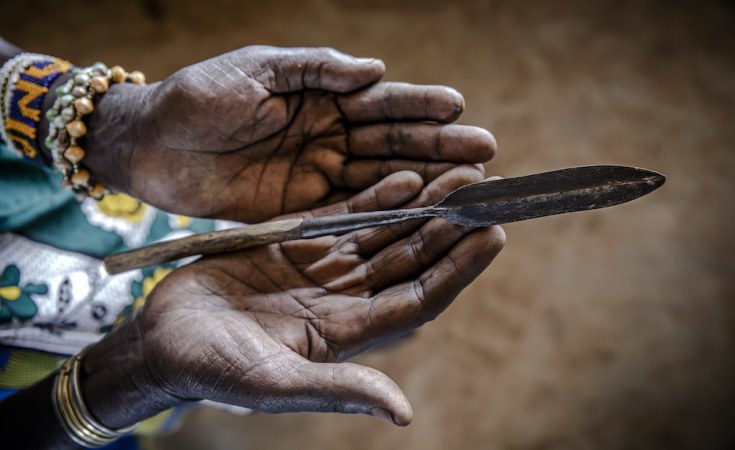Kisii — Despite the efforts put in place by governments, organizations and individuals in combating and fighting against Female Genital Mutilation (FGM)through legislation and education, the Kisii community has shifted from traditional way of practicing FGM to medical way.
Medicalization of FGM has made the fight difficult for stokeholders including Civil Society Organizations (CSOs) to bring the vise to an end since medical practitioners and health facilities have taken it as a business to enrich themselves.
Medicalization of FGM in health facilities is an emerging trend in the Kisii community which is now revolutionizing FGM and thus pushing some of the health care workers succumb to culture pressure.
According to the recently released Kenya Demographic & Health Survey (KDHS) data for 2022, the FGM prevalence is 15 percent in the country, meaning that 15 percent of girls and women aged 15 to 49 have undergone the cut.
Besides being Internationally recognized as a human rights violation, FGM has been performed on at least 200 million girls and women in 31 countries across the sub-Saharan Africa, the Arab states and selected counties in Asia.
In Kenya,at least 4M girls and women have undergone FGM with 21% of these girls and women aged 15-49 years subjected to the harmful practice.
UNICEF report in 2014 indicates Kisii community ranked third with 84% after Somali and Samburu communities with 94% and 86% respectively in regard to FGM cases
Dorice Kemunto a FGM survivor said traditionally FGM was conducted as a physical certificate of transformation from a young girl to an adult ready to be married.
"Yes, I underwent FGM decades ago and I don't want to see girls subjected to this harmful practice because the health side effects were so severe to my body,' said Kemunto.
Kemunto aged 60 years has come out to condemn and fight against the harmful practice however she finds it difficult because most of the practices are done in hospitals and kept as a secret between healthcare workers, victims and their caregivers.
Beatrice Ombui a health care worker and also a champion against FGM said despite all the muscle in place to fight against FGM,the community culture believes is fueling the vice
"When performed by medical professionals, FGM may be perceived as more acceptable or safer, leading to a false sense of legitimacy in our community and this can hinder efforts to eradicate the practice,' said Mrs Ombui
She argued, with medicalizing FGM the procedure can still cause severe physical and psychological harm to the affected individuals, even when performed by healthcare providers.
Daphine Biyaki an advocate of the high court said Ignorance of the legal process, including the law itself leads to abetting, aiding and lack of reporting, especially in the medical context in the region.
"Corruption among actors leads to fear to testify and contributes to backlog of cases in the judiciary, affecting dispensation of justice by both actors and perpetrators discouraging their quest for justice. There is need for an awareness about the law and their rights," said Biyaki
Biyaki noted, Poor facilitation of government agencies to respond, conduct investigations and to follow up cases to the end discourages survivors to report as it is cumbersome and difficult to live in the community as the cases drag on.
Young Democrats Executive officer Esnahs Nyaramba said efforts to address the medicalization of FGM have involved advocacy, awareness campaigns, and training programs for administrators, the media, the police and healthcare professionals.
Nyaramba said it is crucial to emphasize that FGM has no medical benefits and can lead to serious health consequences, both physical and psychological, for these women and girls.
"The approach to ending FGM should be multi-faceted, involving community engagement, education, legal frameworks, and support for organizations working to eradicate the harm," said Nyaramba.


